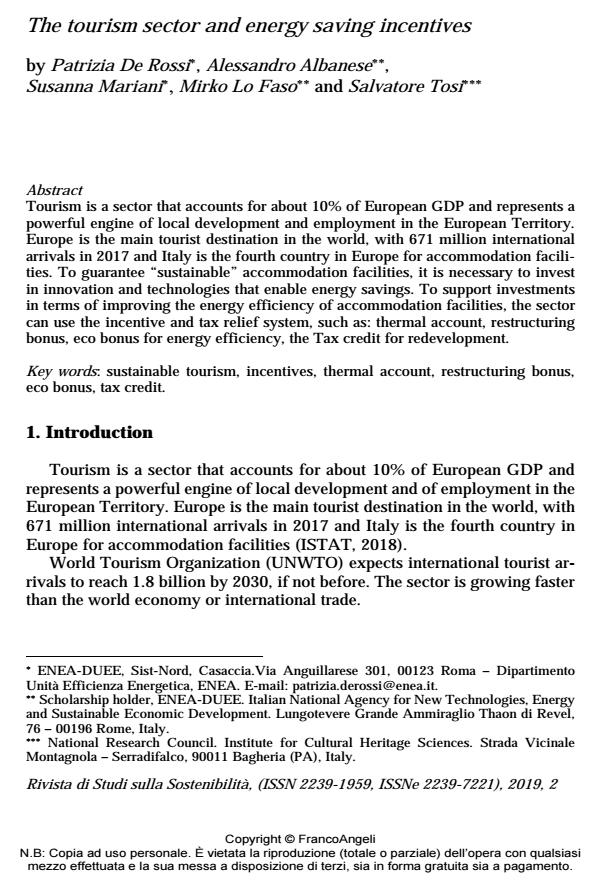The tourism sector and energy saving incentives
Journal title RIVISTA DI STUDI SULLA SOSTENIBILITA'
Author/s Patrizia De Rossi, Alessandro Albanese, Susanna Mariani, Mirko Lo Faso, Salvatore Tosi
Publishing Year 2020 Issue 2019/2 Suppl.
Language English Pages 7 P. 267-273 File size 40 KB
DOI 10.3280/RISS2019-002-S1017
DOI is like a bar code for intellectual property: to have more infomation
click here
Below, you can see the article first page
If you want to buy this article in PDF format, you can do it, following the instructions to buy download credits

FrancoAngeli is member of Publishers International Linking Association, Inc (PILA), a not-for-profit association which run the CrossRef service enabling links to and from online scholarly content.
Tourism is a sector that accounts for about 10% of European GDP and represents a powerful engine of local development and employment in the European Territory. Europe is the main tourist destination in the world, with 671 million international arrivals in 2017 and Italy is the fourth country in Europe for accommodation facilities. To guarantee "sustainable" accommodation facilities, it is necessary to invest in innovation and technologies that enable energy savings. To support investments in terms of improving the energy efficiency of accommodation facilities, the sector can use the incentive and tax relief system, such as: thermal account, restructuring bonus, eco bonus for energy efficiency, the Tax credit for redevelopment.
Keywords: Sustainable tourism, incentives, thermal account, restructuring bonus, eco bonus, tax credit.
Patrizia De Rossi, Alessandro Albanese, Susanna Mariani, Mirko Lo Faso, Salvatore Tosi, The tourism sector and energy saving incentives in "RIVISTA DI STUDI SULLA SOSTENIBILITA'" 2 Suppl./2019, pp 267-273, DOI: 10.3280/RISS2019-002-S1017